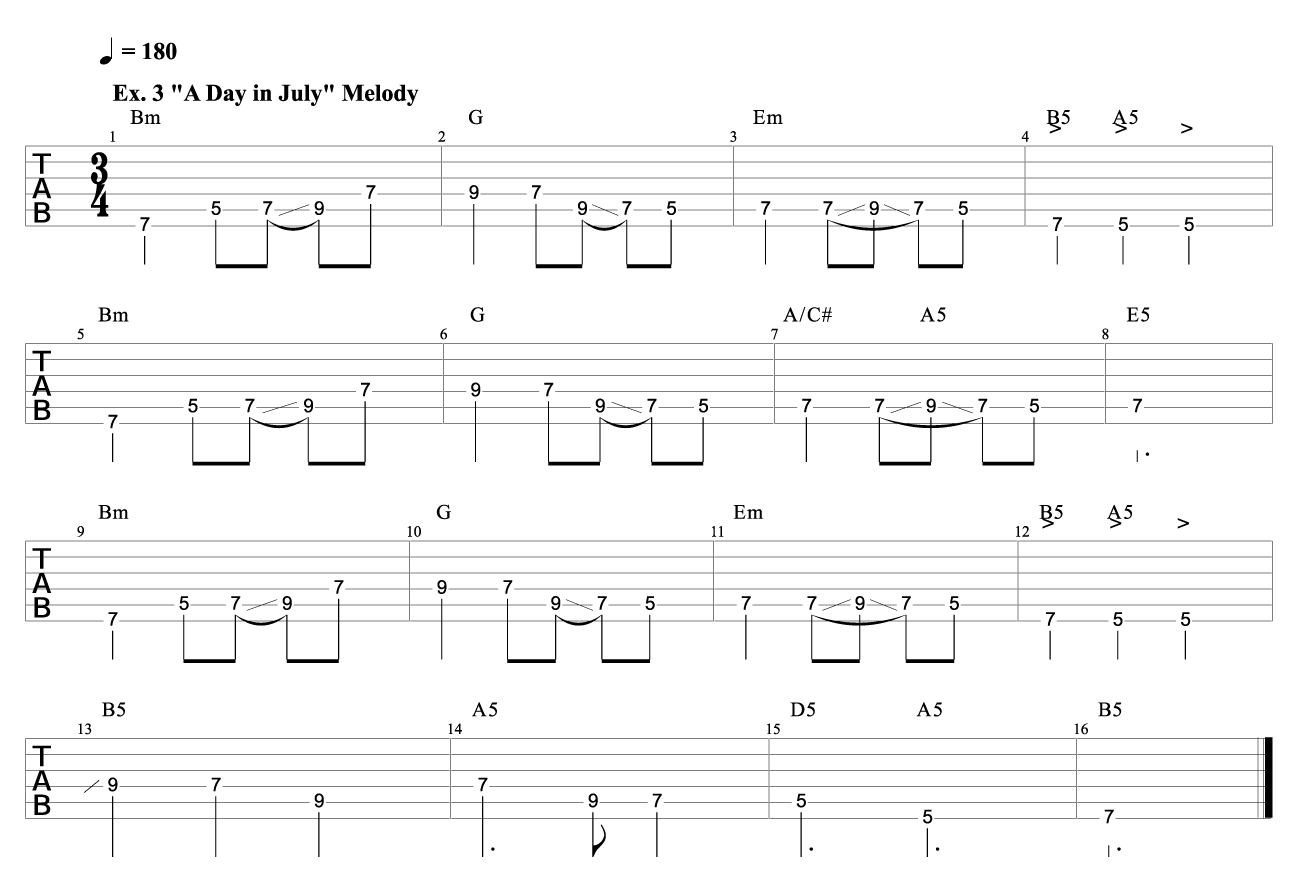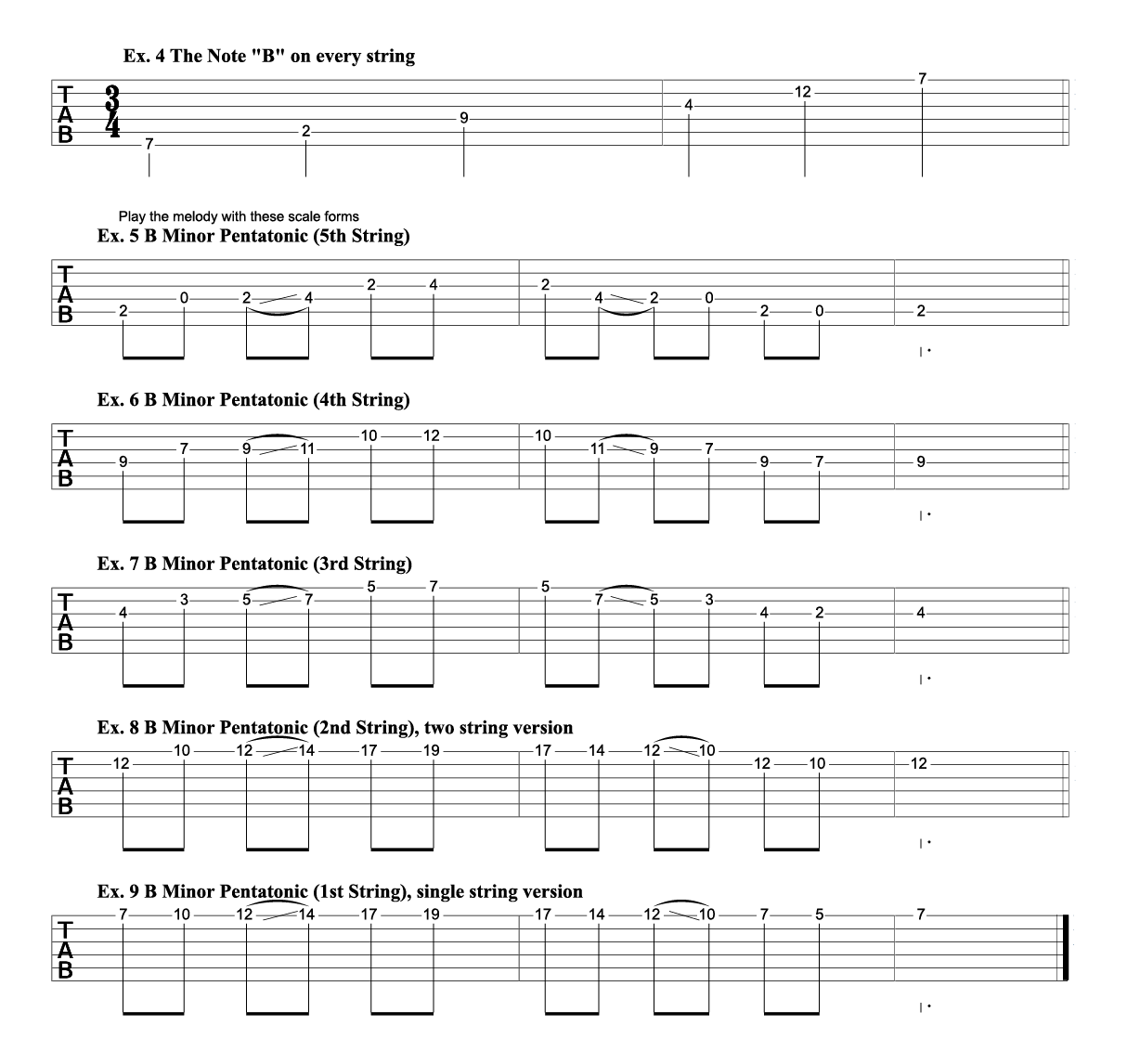
Semeron circa 2012. JR is on the left, and that’s me on the right. We’re playing guitarmonies, of course!
Today we’re going to explore playing a minor pentatonic melody in different positions to better learn the fretboard.
What you’ll learn
- How to play a Minor Pentatonic scale and melody in several positions
- How to find a single note on every string
- How to play a Minor Pentatonic scale and melody on one string
- The importance of space and breath in a melody
This melody comes from my band Semeron’s unreleased song, “A Day in July.” JR Westberg, the other guitarist in the band, has a knack for coming up with simple, catchy melodies. This often comes first to which I will come up with harmony for it, as I did on this song.
It’s one thing to practice a scale all over the neck, but quite another to play a melody all over the neck.
One day while I was rehearsing “A Day in July,” I decided to learn and jam on JR’s part for fun. It was so much fun, that I naturally started playing it all over the neck and noticed how great of an exercise it would be for my students. It’s one thing to practice a scale all over the neck, but quite another to play a melody all over the neck. While scales can sometimes be a bit tedious, playing melodies tends to be more interesting and enjoyable.
This melody uses the B Minor Pentatonic Scale. One reason this melody works is space and breath. Notice that in measure 8 of the melody, he plays a long note which leaves space. It’s important to remember that we don’t always have to fill every moment with a ton of notes and to leave room for our band members. “Let some things go by” as Thelonious Monk would say.
The way the melody is phrased is very musical as well. The first measure is essentially just the B Minor Pentatonic scale ascending, but the use of slides and variety of rhythm makes this melody work. Try playing both measures in Exercise 1 and you should find that the 2nd measure sounds much more musical. It’s a great demonstration on how to turn a scale into music!

Exercise 2 is the B minor pentatonic scale in the position that the original melody is played.

Exercise 3 is “The Day in July Exercise.” I changed the original melody at the end to keep it within the B minor pentatonic scale for the purposes of this lesson.


JR can play the “A Day in July” melody all over the neck, and now you can learn how too!
Exercise 4 is the note B on every string. This will help you identify the root note of the exercise as well as provide the starting point for the melody as you move it around the fretboard.
Exercises 5-9 show a few suggested ways of playing the B minor pentatonic scale from different strings and positions. Once you’re familiar with the original melody, try playing it in these new positions.
Ex. 9 demonstrates the scale on a single string on the high E string. The position shifts might be a bit tricky at first, but playing this way often yields great results in fretboard knowledge and can lead to more variety in phrasing. Once you get this down on the high E string, you can try playing it on other single strings as well.

I hoped you enjoyed checking out this melody and playing it all over the neck. Keep practicing, keep it fun, and see you next time!

